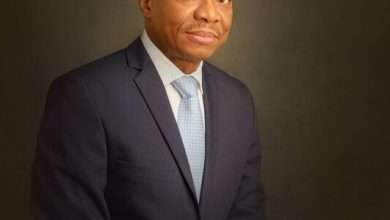Nigeria imposes income tax on forex gains of banks

i
The Federal Government of Nigeria is seeking to tax the realised profits from all foreign exchange
transactions of banks in the 2023 financial year. This measure is contained in the Finance (Amendment) Bill
2024. The Bill provides for a one-off tax of 50% on such realised profits. The Federal Inland Revenue Service
(FIRS) will assess and collect the amount due, though the banks have the option to settle the windfall tax in
instalments. However, the FIRS must approve such instalment plan on or before 31 December 2024. Where
a bank has not executed an instalment plan or paid the additional tax due, such bank will be guilty of an
offense and shall, on conviction, be liable to pay the tax due plus a penalty of 10% per annum and interest at
the prevailing Central Bank of Nigeria’s minimum rediscount rate. The principal officers of such defaulting
bank may also face imprisonment for a period of not more than 3 years.
ANALYSIS
Undoubtedly, the current revenue challenge being
experienced by government and the need to enhance
debt sustainability have triggered this windfall tax
response despite its initial commitment not to introduce
new taxes. The question that has always arisen is how
the Government would fund the initial projected deficit
of N9 trillion (4% of GDP) considering the inability of
government to even meet the specified minimum crude
oil production of 1.78million barrels per day. As of June,
the daily production was 1.5million barrels, inclusive of
220k condensates (which does not form part of OPEC
quota).
The fact remains that Nigeria has not been able to
meet its OPEC quota for a very long time, and it does
not appear that we are close to this given the lack of
investment in the oil sector. According to the Debt
Management Office (DMO), the total public debt as of
31 March 2024 was $92 billion and this amount keeps
increasing. The current debt to GDP is about 50%, which
is higher than the government self-imposed limit of 40%.
It should be noted that Nigeria is not a stranger to excess
profits tax. In fact, Nigerian banks were once subjected
to excess profits tax before the provision was repealed.
There are other countries that have implemented windfall
taxes on excess corporate profits of energy companies
triggered by the Covid-19 pandemic. These include the
UK and the EU countries. In the UK, the initial duration
The Federal Government of Nigeria is seeking to tax the realised profits from all foreign exchange
transactions of banks in the 2023 financial year. This measure is contained in the Finance (Amendment) Bill
2024. The Bill provides for a one-off tax of 50% on such realised profits. The Federal Inland Revenue Service
(FIRS) will assess and collect the amount due, though the banks have the option to settle the windfall tax in
instalments. However, the FIRS must approve such instalment plan on or before 31 December 2024. Where
a bank has not executed an instalment plan or paid the additional tax due, such bank will be guilty of an
offense and shall, on conviction, be liable to pay the tax due plus a penalty of 10% per annum and interest at
the prevailing Central Bank of Nigeria’s minimum rediscount rate. The principal officers of such defaulting
bank may also face imprisonment for a period of not more than 3 years.
Commentary
of the windfall tax was for 2 years, starting from January
2023 before it was extended. Hopefully, Nigeria’s case
will remain a one -off.
Notwithstanding the above, there are many issues that
the proposed implementation of the windfall tax will
trigger, and these should be carefully examined before
the enabling law is enacted. These include the following:
1. It is always important that any proposed change in
tax law or policy be subjected to a period of technical
consultation. This will provide government with the
opportunity to obtain feedback from all stakeholders
and timely address unintended consequences. We
are not aware that any consultation of this nature
has been held. We suggest that such consultation
be carried out before the enactment of the proposed
amendment.
2. Various reports have indicated that Government
may realise about N6.2trillion from the windfall tax.
However, there is no publicly available policy-costing
document on this. This lack of transparency has been
the bane of policy formulation in the country. It is
always important that the public be presented with
tax expenditure statement showing how much will
be generated from the introduction of a new tax. It
will also afford the public the opportunity to review
the reasonableness of the assumptions underpinning
© 2024 KPMG Advisory Services, a partnership registered in Nigeria and a member firm of the KPMG global organisation of independent member firms affiliated with KPMG International Limited, a
private English company limited by guarantee. All rights reserved.the revenue target. Interestingly, available reporting
also indicates that about 50% of the amount to be
generated will be spent on recurrent expenditure!
One would have expected that the money would be
spent on a package of targeted measures to help
support Nigerian households with the rising cost of
living!
3. Nigeria’s tax policy frowns at retroactive application
of tax laws. It is, therefore, surprising, that the
government has chosen to implement this windfall
taxes retroactively. Moreover, many of these banks
have submitted their tax returns for the 2023 financial
years and have settled the resultant liability. The
impact of this retroactive application may raise
constitutional concerns as it may violate the principle
of legitimate expectations. It will, therefore, not
be surprising if the implementation leads to legal
disputes and challenges. Retroactive tax laws can
discourage investment as potential investors may
perceive the Nigerian tax system as unpredictable.
The uncertainty will make it challenging for
businesses to anticipate their tax obligations and may
be suspicious that the tax will be repeated in future.
Today, it is the banking sector. Who says that it
cannot be extended to other sectors tomorrow!
4. The proposed law imposes 50% tax on realised
forex gains of banks. However, in their 2024 tax
returns, these banks would have paid 30% income
tax on such profits. The question, therefore, is
whether such banks would only pay additional
20% on such profits. This needs to be clarified to
avoid unnecessary disputes and double taxation;
otherwise, the same income would be taxed twice.
5. Any business that holds monetary assets in foreign
currency would have earned realised forex profits if
such assets were settled during 2023. The question
is why are only banks singled out for this treatment?
One of the fundamental principles of the National Tax
Policy is equity and fairness. The Tax Policy requires
the Nigerian tax system to be fair and equitable and
devoid of discrimination. Why would we need a tax
policy that we cannot uphold?
6. Currently, banks are embarking on a recapitalisation
drive to meet the minimum capital requirements
stipulated by the Central Bank of Nigeria (CBN)
in respect of the various banking licences. Given
the strict definition of paid-up share capital, banks
have very limited options for meeting the new
capital requirements. Thus, the threat posed by the
proposed windfall tax is an unnecessary distraction
that the banks do not need at this time. It is,
therefore, important that the Ministry of Finance
engage with the CBN and the banks to critically
evaluate the implications on the ability of the banks
to raise capital. It is likely, that in the short term,
the share price of these banks may be adversely
affected.
7. One thing that is missing from the Amendment
Bill is tax relief for the banks that will be subject
to the windfall tax. Available evidence shows that
anywhere a windfall tax has been introduced, it
makes sense to introduce some form of tax relief,
such as investment allowance, to cushion the impact.
This will encourage the banks to spend and, in turn,
accelerate economic growth. We, therefore, suggest
that this be considered before the law is enacted.
8. It is important that there is proper monitoring and
implementation of the windfall tax to ensure that the
defined objectives are met. This will enable a review
of the policy and necessary and timely adjustment
when required. Otherwise, it will be business as
usual.
While we may understand the reasons why the
government has opted for the windfall tax on realised
forex profits (which may be considered extraordinary and
which are not due to any creative efforts but just unusual
favourable market factors) of banks, we believe that it
would have been able to secure the necessary buy-in of
the banks if there had been adequate consultation from
the outset. We do not think this is late though. We,
therefore, recommend that Government engage with
the CBN and the Bankers’ Committee to agree possible
changes as soon as possible. We suggest that the other
issues highlighted above be taken into consideration
before the Amendment bill is enacted.
The information contained herein is of a general nature and is not intended to address the circumstances of any particular individual or entity. Although we endeavor to
provide accurate and timely information, there can be no guarantee that such information is accurate as of the date it is received or that it will continue to be accurate in
the future. No one should act on such information without appropriate professional advice after a thorough examination of the particular situation.
© 2024 KPMG Advisory Services, a partnership registered in Nigeria and a member firm of the KPMG global organisation of independent member firms affiliated with
KPMG International Limited, a private English company limited by guarantee. All rights reserved. The KPMG name and logo are trademarks used under license by the
independent member firms of the KPMG global organisation.



